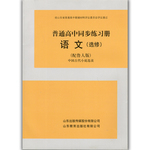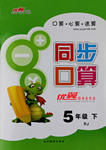题目内容
| |||||||||||||||||||||||||||||||||||||||||||||||||||||||||||||||||||||||||||||||||||||||||||||||||||||||||||||||||||||||||||||||||||||||||||||||||||||||||||||||||||||||||||||||||||||||||||||||||||||||||||||||||||||||||||||||||||||||||||||||||||||||||||||||||||||||||||||||||||||||||||

 海淀黄冈名师导航系列答案
海淀黄冈名师导航系列答案 普通高中同步练习册系列答案
普通高中同步练习册系列答案 优翼小帮手同步口算系列答案
优翼小帮手同步口算系列答案完形填空
When Nancy Lublin got $ 5000 from her great grandfather, she never once considered taking a vacation or paying off student loans(借款). ____1____ the 24-year-old New York University law student began thinking about the clothing ____2____ faced by most of today's low-income women: “If she goes for a job interview ____3_____ dressed, she won't get the job,”Lublin says.“But without a job, she can't ____4____ proper clothing.”
A few weeks later, Lublin ____5___ Dress for Success and began searching for clothing and volunteers(志愿者). She asked women to give away ____6____ business clothes that were ____7____ in good condition. She asked the members of diet centers to give away clothes that no longer fit. At first Lublin ____8____ the clothes in her one-bed-room apartment, but finally she found ___9___ in Greenwich Village church basement, which now ___10___ as the organization's main office.
Today, when women arrive at the office for help with job-hunting, they ____11___ a dress, shoes, a bag, stockings and jewelry, and self-confidence as well. Some are trying to enter the work __12___ after being on welfare(福利)for years.
__13____Dress for Success fitted its first per son who got help a year ago, more than 1 000 women have received dresses and many have won ___14___. Yarit Polanco was recently __15___ as a law-firm office manager. “Thanks to Dress for Success, I made a good impression(印象)and was accepted.”she says.
Donations(捐赠)are now __16___ in, including jewelry and 6 000 pairs of trousers and $ 40 000 worth of handbags. Broadcast journalists have given suits. And Lublin is opening Dress for Success ____17____ in other cities. “Many women have clothes ____18___ around that they'll never wear again,” says a volunteer.“Nancy's ___19___ is simple and practical and the ___20___ has proved so important to those women who are in great need of it.”
|
(1)A.Anyway |
B.Instead |
|
C.Fortunately |
D.Meanwhile |
|
(2)A.condition |
B.direction |
|
C.design |
D.plan |
|
(3)A.poorly |
B.well |
|
C.better |
D.worse |
|
(4)A.make |
B.find |
|
C.wear |
D.afford |
|
(5)A.reached |
B.called |
|
C.founded |
D.visited |
|
(6)A.used |
B.needed |
|
C.new |
D.torn |
|
(7)A.yet |
B.already |
|
C.Almost |
D.still |
|
(8)A.hid |
B.stored |
|
C.discovered |
D.hanged |
|
(9)A.space |
B.employers |
|
C.work |
D.office |
|
(10)A.regards |
B.serves |
|
C.looks |
D.lies |
|
(11)A.buy |
B.sell |
|
C.receive |
D.watch |
|
(12)A.office |
B.victory |
|
C.wealth |
D.force |
|
(13)A.When |
B.Once |
|
C.although |
D.Since |
|
(14)A.jobs |
B.shoes |
|
C.business |
D.prizes |
|
(15)A.fired |
B.hired |
|
C.interviewed |
D.considered |
|
(16)A.giving |
B.pouring |
|
C.showing |
D.sending |
|
(17)A.schools |
B.trades |
|
C.races |
D.branches |
|
(18)A.lying |
B.appearing |
|
C.collecting |
D.coming |
|
(19)A.promise |
B.belief |
|
C.idea |
D.opinion |
|
(20)A.help |
B.work |
|
C.shop |
D.money |
| |||||||||||||||||||||||||||||||||||||||||||||||||||||||||||||||||||||||||||||||||||||||||||||||||||||||||||||||||||||||||||||||||||||||||||||||||||||||||||||||||||||||||||||||||||||||||||||||||||||||||||||||||||||||||||||||||||||||||||||||||||||||||||||||||||||||||||||||||||||||||||